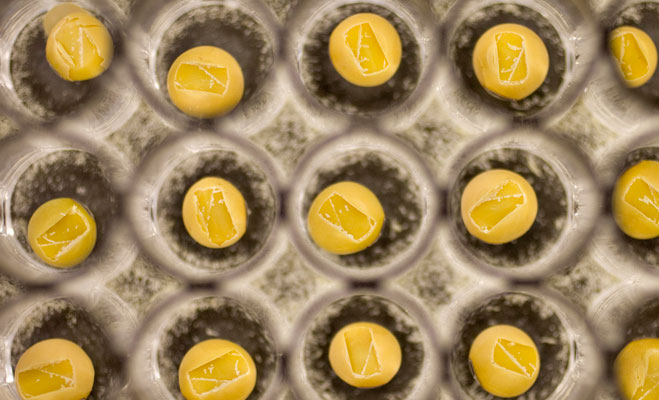New crops for tired climates
Monsanto, famous for developing new strains of seeds and helping farmers improve their crop yields, has received US approval to test its new drought-tolerant biotech crop

The hope is that this genetically-engineered seed will provide farmers with an alternative when traditional grain products fail due to lack of water.
The initial large-scale tests will be run throughout the Midwest, in states from South Dakota to Texas. Monsanto’s new corn is notable because it is the first genetically modified product to be approved by the United States Department of Agriculture, rather than a herbicide or pesticide. The USDA decided against imposing regulations on the corn, giving tacit approval for its commercial use.
Environmental watchdog groups, like the Union of Concerned Scientists, are taking a wait and see approach, but note that even if the crop delivers as promised, it may be too little, too late. The effects of climate change are already being felt, from drastic weather to the drought conditions that are plaguing food growing areas throughout the world. Crop yields are dropping and farmers are being forced out of business and whether one genetically engineered crop can save them is doubtful.
UCS also points out that the drought tolerance of a crop and its water use efficiency (WUE) are tied together, but that is not necessarily true; the two traits are controlled by two different genes and whether Monsanto’s genetic modifications have affected both remains to be seen. Monsanto has not addressed that issue in its publicity and the papers filed with the USDA do not go into that particular aspect of the corn’s genetic modification.
Having said that, even a small improvement may provide some degree of much needed relief to thirsty farmers. The use of corn-based products has more than doubled in the past 30 years and an ever- growing demand for ethanol means that demand is likely continue unabated, for many years to come. That means there is likely to be a substantial market for this product in the farmer’s range of crops. Monsanto is also being careful to moderate expectations of the product, which will be marketed under the name DroughtGard. “This isn’t a product that we’re expecting to grow in the desert,” says Monsanto spokeswoman, Danielle Stuart. Initial testing is therefore to be carried out in areas that meet the company’s guidelines for the product, which include moderate drought conditions.
Monsanto has said that it hopes to have many more products in its development pipeline as it moves forward and some are likely to be drought-resistant varieties of other crops. If the trials of DroughtGard corn are successful, it could pave the way for even more drought resistant strains of corn and perhaps a broader range of grains and vegetables. As climate change continues to impact farming and food production around the globe, it is likely that a range of solutions will be required and drought-resistant crops are likely to be just a small part of that arsenal.













